Sunday, March 12, 2006
when u make plans, say INSHA ALLAH
'I don't make plans at all. Plans are what make God laugh'
From a beautifully demented Caligula to a mauve-quiffed Quentin Crisp and a disfigured Elephant Man, John Hurt's extraordinary talent has been to find the human truth at the heart of a character. Now, after four wives, late fatherhood and a lifetime of legendary carousing, is he finally happy in his own skin? With two new films about to open, the actor with the 'most distinctive voice in Britain', tells all to Barbara Ellen. Sunday March 12, 2006The Observer
Now one comes to think of it, my interview with John Hurt may have been a casualty of bad timing. When I speak with him, Hurt is clearly still rankled about the last interview he gave, where he felt he was 'misrepresented' (more of which later). But then, Hurt generally despairs of interviews (he thinks they're riddled with 'corporate thinking' and the 'editorial line'); which might explain some aspects of his behaviour during our meeting.
Article continues
There aren't any major explosions, more little steam-engine puffs of tetchiness. He'll be talking away, perfectly pleasantly, then suddenly take umbrage at topics he's been happy to talk about in the past, or he'll float off on some tangent (a favourite theme is having to do press 'and all that crapping rubbish' in the first place). Either he loathed me on sight (always a possibility), or he's having an anti-journo day. Nor is this confined to the 'juicy' subjects Hurt could be forgiven for wishing to skirt around (the drinking, the lively love life). He can be prickly over the most mundane of details ('I never said I liked Ireland better than England. Never!') Other times, Hurt is so charming you think you must be imagining the other stuff. Maybe it is just that after all this time he has grown weary of media scrutiny. 'Of being the subject of voyeurism?' says Hurt. 'Oh yes, I'd prefer to live without it, definitely I would.'
We meet at the Charlotte Street Hotel in Soho. Hurt, 66, is slighter than you'd imagine, but instantly recognisable, with that extraordinary, elegantly wasted, craggy face (you feel like grabbing a piece of paper and doing a brass rubbing for posterity), and the even more distinctive voice (nicotine sieved through dirty, moonlit gravel). After a few minutes muttering to each other self-consciously in the public lounge, he agrees that we should take the interview up to his room. '102,' says the receptionist. 'So long as it's not Room 101,' jokes Hurt, referencing his role as Winston Smith in Michael Radford's film of 1984. Bad memories, I say. 'Oh yes,' he cackles, and chats on the way up about how he and his (fourth) wife Anwen plan to move from their home in Soho. 'But not too far,' he smiles, entering the room and gesturing genially out of his window. 'Just to somewhere in Bloomsbury.'
We're here to talk about his new film, Shooting Dogs, directed by Michael Caton-Jones. Hurt currently features in two other high-profile films. The Proposition is a dark Australian western directed by John Hillcoat and scripted by Nick Cave. Then there is James McTeigue's comic-book adaptation, V for Vendetta, with Natalie Portman, a vision of Britain as a fascist state from the creators of the Matrix trilogy - in a neat twist, the former Winston Smith portrays a sinister Big Brother-style leader. Shooting Dogs is different again: set during the Rwandan tribal massacres in 1994, it is an unsettling drama, based on the experiences of a Catholic priest (played by Hurt), trapped with hundreds of Tutsis in a school compound, surrounded by machete-wielding Hutus and UN troops (who duly abandon them to their fate).
Shooting Dogs is a brave project (the events of Rwanda and the West's lack of intervention, not exactly crowd-pleasing material). Hurt describes it as, 'a film beyond the call of duty. Not an entertainment film in a sense, hopefully more of an experience.' He says he was aware, 'the way most people were', about the atrocities. 'One knew there was a desperate situation that was not being regarded by the rest of the world, and should have been regarded. And that the United Nations was powerless to do anything and chose that path, if it was a choice.' Does he feel the film's central theme is the darkness of human nature? 'There is no such thing as all good people and all bad people,' says Hurt. 'We're all capable. It exists within us. In war-time, as we're finding out now, things that have been on camera, our wonderful troops, who we felt were absolutely impeccable, were as guilty as everybody else of...' He fails to finish the thought, starting another with a sigh: 'If you're given licence to kill, it's going to release many an evil.'
Going by Hurt's finest cinematic moments (1984, Midnight Express, A Man for All Seasons, Elephant Man, Love and Death on Long Island), he has a taste for darkness, or at least the disturbed and complicated. (Even in Alien it made a funny kind of sense that it was Hurt's character who had the alien burst through his stomach.) In recent years, he has enjoyed something of a theatrical resurgence (2005's Heroes for Tom Stoppard at London's Wyndham's Theatre, a 'definitive' performance in Samuel Beckett's Krapp's Last Tape at Dublin's Gate in 2000). The artistic director of the Gate, Michael Colgan had to talk him into doing the Beckett. When Hurt returned to theatre after a long absence, with Helen Mirren in Turgenev's A Month in the Country in 1994, he says he found it 'tricky'. 'Just being away from it for so long, the muscles had gone a bit flabby. You have to rediscipline yourself, redefine the battlefield.'
However, it was his television work which kick-started Hurt's reputation as the poster boy for extremes of human behaviour. The beautifully demented Caligula in I, Claudius, more recently, The Alan Clark Diaries, and his breakthrough role (a daring choice at the time) the 'stately homo of England', Quentin Crisp, in The Naked Civil Servant. Crisp, with whom Hurt became friends, rather cheekily wrote: 'I told Mr Hurt it was difficult for actors to play victims, but he has specialised in victims. And when he stopped playing me, he played Caligula, which was only me in a sheet. Then he played the Elephant Man, which was only me with a paper bag over my head.'
Obviously, Hurt's range has extended further than that. Caton-Jones (who also directed him in Scandal and Rob Roy), describes Hurt to me as: 'One of the greatest screen actors ever, and one of the bravest - because he's all about honest emotion. People think actors have to pretend or lie. The best actors, like John, know they have to search for the truth.' Hurt says: 'You have to find the character's emotion, that's what being a performer is. Looking at Richard Rich [in A Man for All Seasons], looking at Quentin, looking at whoever it might be, and trying to describe it and understand it as if it were a painting.' When was the first time he did that? Hurt lets out one of his barking laughs. 'I've never done it, never really done it. Someone once asked me, "Is there anything you regret?" and I said, "Everything!" Whatever you do, there was always a better choice.'
Why did Hurt never go to Hollywood properly? He had his chances, not least after his Oscar nomination for Elephant Man. Hurt has said how the first thing he was offered by Hollywood after that was the role of Quasimodo. Now he simply says there wasn't enough of a pull. 'I was happy to go to Hollywood if I was invited, but I didn't want to just put myself out there.' Recently, Hurt spoke out by criticising the Oscars. 'I've always felt, and I think I'm qualified to say so because I've won a few awards, that it's a terrible shame to put something in competition with something else to be able to sell something. Confronted with films like Brokeback Mountain and Capote and the Johnny Cash movie, you can't pit one against the other. Films are not made to be competitive in that sense.' Quite. However, for some reason, bringing up Hurt's CBE in 2004 provokes a fit of tetchiness. 'Look,' he snaps. 'This is the world I live in. If somebody comes along and says, "Here's a CBE," then of course I'm happy to take it. I don't believe in turning things down like that. I don't treat myself any differently, but if the establishment says, "That's what we'd like to give you," I'm not going to get uppity about it, I'm not a republican or anything like that.' I'm sitting there thinking, 'Where did that come from?' I couldn't care less if Hurt accepted his CBE. (Except if in some delicious roundabout way, Quentin Crisp could be imagined accepting it with him.)
After that, I can't put a foot right for a while. First there is the preferring Ireland to England thing (Hurt lived for many years in Ireland and rhapsodised as recently as 2001 about it being 'where he belonged'). Then, when I mention him once describing his mother, Phyllis, as a 'frustrated actress', he huffs. 'That's somebody embellishing what I say. I don't think I said that at all.' I annoy him (yet again) by saying I'd read that his mother was earnest about social standing (a bit of a snob in other words). 'If you did then it wasn't very well explained,' Hurt retorts. He lowers his eyes as if in pain. 'Why should it be well explained? Journalists have to write something. Sometimes it's very perceptive. Sometimes it's not.' Eventually, we sort it out. According to Hurt, his mother did love the theatre and he thinks she would have adored (presumably in a 'non-frustrated' way) to have been more involved. 'She used to do productions for the church hall,' he recalls fondly. Later, when Hurt seems to have forgotten about telling me off, he admits his mother was class-conscious, which he found disappointing. 'I didn't find that the best thing about her at all. I couldn't equate it to Christianity somehow.' Was she pleased about him acting? 'I think she was immensely pleased. And I think my father was, in his own taciturn way. But he was never a great communicator.'
Hurt's father, Arnould, was a vicar. They had three sons (one of whom became a monk). Hurt's parents considered acting to be too insecure, so he went to art college before ending up at Rada (he still paints, and thinks he would have been 'reasonably successful' if he'd stuck with it). But it was at school that Hurt first came to love acting, usually playing female roles, such as Lady Bracknell. He preferred the female parts? 'They preferred me to play the female parts.' Because you were so pretty? Hurt laughs 'HA! I was pretty, I was small, and I had a high voice, so it was natural for them to do that. I didn't consider myself to be pretty, not at all.' Hurt twinkles. 'I thought I was very butch, but there you are.'
Hurt's prep school, St Michael's in Sevenoaks, Kent, where he was sent to board at the age of eight, was central to the earlier-mentioned interview that Hurt seems so unhappy with. Hurt has always said that the school was high church with a high moral tone and lots of corporal punishment, which seems rather harsh on an eight-year-old boy. 'The point is again, you're a creature of your time,' says Hurt. 'That was the status quo, that was life. I didn't question my lot.'
In the Independent on Sunday Hurt went further, discussing how a senior master had a habit of removing his front teeth and inserting his tongue into the boys' mouths and rubbing their faces with his stubble, and that it had happened to him. Now Hurt feels his views were misrepresented. In what way? He won't be drawn. It sounds shocking now, but was it the case that in the muddle of childhood it seemed almost 'normal', part of the day? 'Yes,' he murmurs vaguely. 'Part of the day. Life goes on. A lot is difficult to take in or deal with.' Looking back, does Hurt feel he was 'abused' in the modern sense? 'Well, it wouldn't be a possibility now...' His voice trails away. He obviously wants to get off the subject. 'This is too dangerous a subject for newspapers, I think'.
You could wonder if these incidents had any bearing on Hurt's well-documented excesses in adult life, but that would be a bit tidy. However, while Hurt no longer drinks like he did, for a while (actually quite a long while) his reputation for hell-raising and boozing around his beloved Soho (his 'village') rivalled his one for acting. The gossip columns were full of him falling out of hostelries or staggering around awards ceremonies (sometimes while presenting the awards). When I ask if, in his heyday, he felt he was in some sort of Soho gang/wrecking crew (with Richard Harris, Peter O'Toole, Jeffrey Bernard), he shrugs. 'No, not at the time. It must have looked like it in retrospect.' Hurt didn't help matters with such revelations as the one about him downing seven bottles of wine a day to 'enhance' his portrayal of the dishevelled Max in Midnight Express (he later amended this to three).
Then there is Hurt's somewhat hectic personal life. There was a brief first marriage, a long relationship with a French model, who died in a riding accident. Then, a second wife, Texan Donna Peacock, whom he built a house with in Kenya, then left for third wife, Jo Dalton (the mother of his two sons). Hurt returned to Peacock after Dalton had an affair, then left her again and settled with 'rock publicist' (always described as 'much younger') Sarah Owens, in County Wicklow (to be near his sons). Now he is married to ('much younger' again) advertising commercials producer, Anwen Rees-Myers.
It would be unfair to overplay all this (Hurt has lived for 66 years), but certainly his personal life has been eventful. When I ask if he is happily married, Hurt says firmly, 'I am. My other relationships...' he pauses. 'When you get into the emotional areas, the animal areas, I think you'll find it's the one area where it doesn't seem to matter what intellect you have. Some of the most highly intelligent people I know have got just the same problems when it comes to sexuality, mistakes and things. They're brought to their knees by it, you see it in newspapers every day.'
The universal Archilles heel? 'For both sexes, absolutely. We're always making massive mistakes. Then you make the same ones all over again.' I laugh. 'But we do!' grins Hurt. 'How many friends do you have, where you say, "Oh, surely you're not going out with that one, it's exactly the same as the one before, how can't you see it?"' So that's one thing he's learned. 'Yes, intellectually. Emotionally, I don't know.' Relatively late fatherhood (the sons started arriving when he was 50) didn't really change him. 'I don't think you automatically become an enlightened person because you are a daddy. But they will change you, of course - their understanding of you puts you in a different place.'
His drinking days, Hurt is less happy to discuss, but it's difficult not to. There have been suggestions that, to an extent, he wasted his talent because he was too busy carousing. But Hurt always said he stopped when his drinking started to interfere with his work. 'If alcohol is going to get in the way of your work rather than enhance it, I'm not interested in using it,' he says. 'So I've decided not to use it.' Have there been times when Hurt wished he'd led a more ordered existence? 'But that would be such a waste of time. "If" and "only" are the two words in the English language that should never be put together.' Actually, looking through his cuttings, I became tired of reading about the 'Tragic dissipation of John Hurt' and what I really wanted to know was if he'd had any fun. 'Yes, I loved to have fun.' says Hurt somewhat glumly. 'At the same time I was very serious. There was agonising and there were ecstasies. You can't have one without the other.'
Just after this, the photographer buzzes the doorbell, signifying that we're near the end of the interview. Is it my imagination or does Hurt cheer up considerably? 'I do hope that's been some use to you,' he clucks, bundling me out of the door. While we are still talking, he expresses amazement that he's made well over 100 films. 'Ludicrous, yes that shocks me.' There was a fair amount of rubbish (done for money), but Hurt shrugs off his 'stinkers'. 'You've got to make a living.' Does he think people sometimes forget the good films he's been in, the great performances? 'They can do,' says Hurt wryly. 'You know,' he says. 'I've never guided my life . I've just been whipped along by the waves I'm sitting in.' You don't make plans? 'I don't make plans at all. Plans are what make God laugh.' Hurt gives another of his barking laughs. 'You can make plans, you can make so many plans, but they never go right, do they?'
Printable version Send it to a friend Save story
Subscribe to:
Post Comments (Atom)






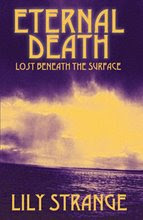







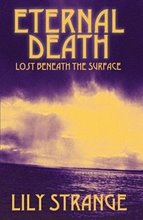

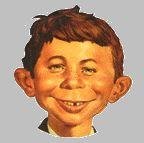
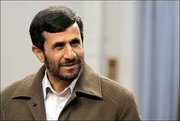
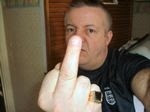
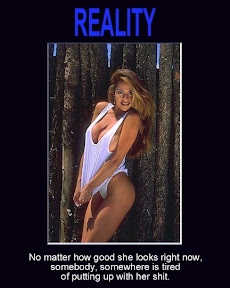







1 comment:
Saby why r ur posts SO LONNNNNNNNG?
btw I dun make plans...cos whenever I do, I'm laughing stock to God...
Keshi.
Post a Comment